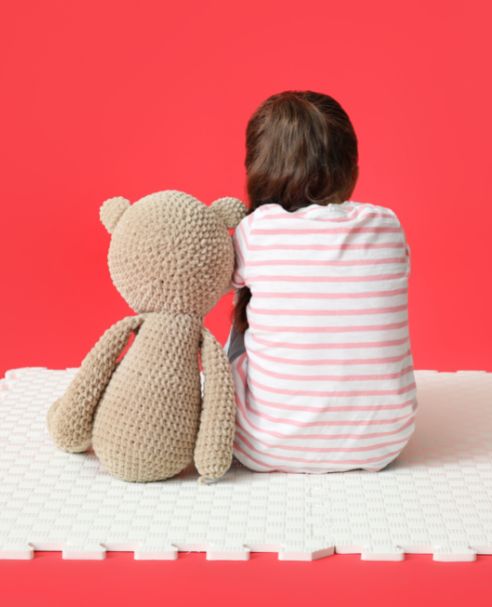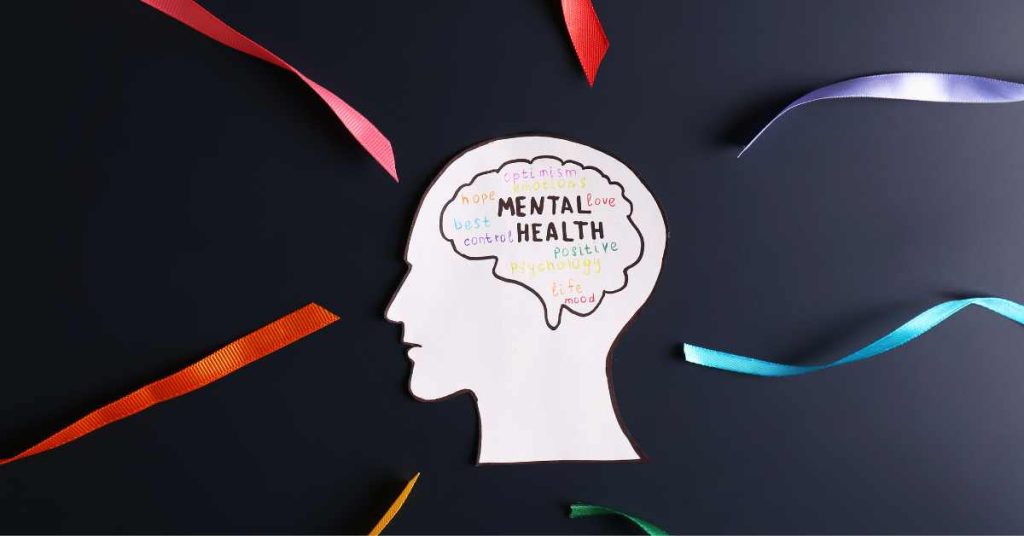Mental Health Awareness for Children of Divorced Parents: Understanding the Impact and Providing Support

Divorce is a life-altering event for all involved, but for children, it can have significant emotional and psychological effects. While many children can adapt and thrive after their parents’ separation, others may struggle with feelings of confusion, sadness, anger, depression or anxiety. For many kids, the separation of their parents represents the loss of the stable world they once knew. Understanding the impact of divorce on children’s mental health and providing the right kind of support can significantly help them cope and adjust to this major life change. In this blog, we’ll explore how divorce affects children’s mental health and the ways parents can support them. We welcome local mental health care bloggers to share their views and blogs with us – and are partnering online with various mental health care organizations. We are at Mental Service looking to bring innovation to the mental health care space – and are partnering with mental health professionals.
The Emotional and Psychological Impact of Divorce on Children
- Anger and Resentment: Divorce can lead to a wide range of intense emotions, including anger and resentment. Children may feel angry at one or both parents for the separation and could internalize feelings of betrayal or injustice. This anger may be directed outward through aggressive behavior, or inward, resulting in withdrawal or self-blame. Children may also have symptoms showing behavior problems, withdrawal, or difficulty in trusting others. Recognizing and validating these feelings early on is crucial.
- Sense of Guilt or Self-Blame: A common emotion children experience during a divorce is guilt. They may irrationally believe that they are to blame for the separation, wondering if their behavior or actions somehow led to the divorce. This can lead to low self-esteem and the burden of feeling responsible for the breakup of the family. Without reassurance, children may carry these feelings into adolescence and adulthood, affecting their self-worth and how they form relationships later in life.
- Depression and Withdrawal: In some cases, children of divorced parents may experience depressive symptoms, including sadness, lack of motivation, and social withdrawal. These children experiencing withdrawal may become quiet, isolated, or exhibit changes in sleeping and eating patterns. They may isolate themselves from friends and family or lose interest in activities they once enjoyed. If these symptoms are left unaddressed these emotional challenges can impact not only their mental health but also their academic performance and social relationship.
- Feelings of Loss and Grief: Throughout the divorce the child may feel a sense of loss, mourning the family life they once knew. Children may feel as though they’ve lost the stability and security that a two-parent home provides. Even if the divorce was amicable, moving between two households, changes in parenting styles, or even seeing one parent less frequently can all contribute to a sense of instability and grief. These feelings, if unspoken or unsupported, can lead to trust issues and attachment problems in the future.
How to Support Children of Divorced Parents
Understanding the emotional impact of divorce on children is the first step—knowing how to support them effectively is the next. Below are key strategies parents and caregivers can implement to foster emotional stability and resilience in children during and after divorce.
- Foster Open Communication: Encourage children to express their thoughts and feelings about the divorce. Let them know it’s okay to be sad, confused, or angry, and reassure them that they are not to blame. By fostering open communication, parents can create a safe space for children to process their emotions without fear of judgment. It is important to use age-appropriate language and be honest without overwhelming them with adult-level details.
- Avoid Negative Talk About the Other Parent: It’s important to avoid speaking negatively about the other parent in front of the child, as this can increase feelings of confusion, guilt, and anger. Even if the divorce was difficult, maintaining a positive and respectful tone when talking about the other parent shows the child that they can love both parents without choosing sides. This shows children that love and respect can persist even when relationships change.
- Maintain Stability and Routine: Children thrive on consistency and structure, especially during times of change. Keeping routines consistent—such as school schedules, meal times, and bedtime rituals—helps children feel secure and in control, reducing anxiety and promoting emotional well-being.
- Provide Reassurance and Emotional Support: Children need reassurance that they are loved and that both parents will continue to be a part of their lives, even if they no longer live together. Make sure your child knows that their feelings are valid and that both parents are committed to their well-being. Make time for one-on-one check-ins to talk about their feelings, and offer positive reinforcement to help rebuild their confidence and sense of security.
When to seek help
Early intervention and support can help children develop the emotional skills they need to thrive despite the changes in their family dynamic. If your child is showing prolonged signs of anxiety, depression, behavioral issues, or withdrawal, it may be time to seek help from a mental health professional. A trained professional can help the child cope with the emotional impact of divorce or life altering events. With tools to allow the child to process their feelings and develop healthy coping mechanisms.
Emotional Reactions Children May Experience During Divorce
Children often experience a wide range of emotions during and after a divorce, including sadness, confusion, anger, guilt, and fear of abandonment. These emotional reactions are normal, but when left unaddressed, they can contribute to long-term mental health issues. It’s essential for parents to acknowledge their child’s feelings and create a safe environment where emotions can be expressed openly. Recognizing the mental health symptoms in children of divorced parents early on can help prevent deeper emotional struggles.
Divorce and Childhood Anxiety or Depression
Divorce can trigger childhood anxiety and depression, particularly when children are caught in the middle of parental conflict or lack consistent routines. Signs of anxiety may include irritability, sleep disturbances, and excessive worry, while depression may appear as withdrawal, low energy, or academic decline. Seeking early mental health support for children of divorced families is key to ensuring emotional recovery. Online counseling platforms like MentalService.com offer accessible tools and chat support to help children navigate these feelings.
The Role of Parental Conflict and Communication
One of the biggest factors impacting children’s mental well-being during a divorce is ongoing parental conflict. High-conflict divorces can create a hostile environment that leads to toxic stress in children, making it harder for them to adjust. Reducing conflict, maintaining respectful communication, and shielding children from adult disputes are critical steps. MentalService.com offers family mental health resources to help co-parents build healthier post-divorce relationships that protect their children’s emotional stability.
Maintaining Routines and Reassurance – Local Mental Services Care Information Online Blogging
Stability is vital during times of change. When parents prioritize consistent schedules and daily routines, it gives children a sense of control and predictability. Reassuring children that they are loved and not at fault for the separation can reduce emotional confusion. Parents can also use online parenting and mental health support tools from MentalService.com to reinforce positive communication and reduce anxiety in young minds facing transition. We are at Mental Service – discussing and blogging online about mental health care and psychological services online.
How Therapy Helps Children of Divorced Parents
Professional counseling offers a safe space for children to express their feelings and develop coping strategies. Child therapists trained in divorce-related emotional support can help kids process their experiences and develop resilience. Platforms like MentalService.com provide virtual child therapy options and mental service help online, making it easier for families to access professional care without the limitations of travel or cost.
Supporting Teens Through Parental Separation
Teenagers may appear more independent, but they are still vulnerable to emotional fallout from divorce. Teens may internalize blame, rebel, or withdraw as a way of coping. Open dialogue, validation of their experiences, and access to mental health resources are essential. Teen mental health services for divorced families, available on MentalService.com, offer confidential chat support and therapy options tailored to their age group and specific emotional needs.
Summary: Mental Health Awareness for Children of Divorced Parents
Divorce can have a lasting emotional and psychological impact on children, from anxiety and sadness to behavioral changes and depression. While some children adjust well, others need additional support to navigate the emotional fallout. Key factors such as parental conflict, disrupted routines, and lack of communication can intensify mental health challenges. By providing stability, reassurance, and access to professional mental health services, parents can help their children heal and build resilience. Platforms like MentalService offer mental service information and psychology information help online, including virtual therapy, parenting resources, and child-focused emotional support—making it easier for families to access compassionate care during difficult transitions. Of course, people should seek professional counseling help when needed.




